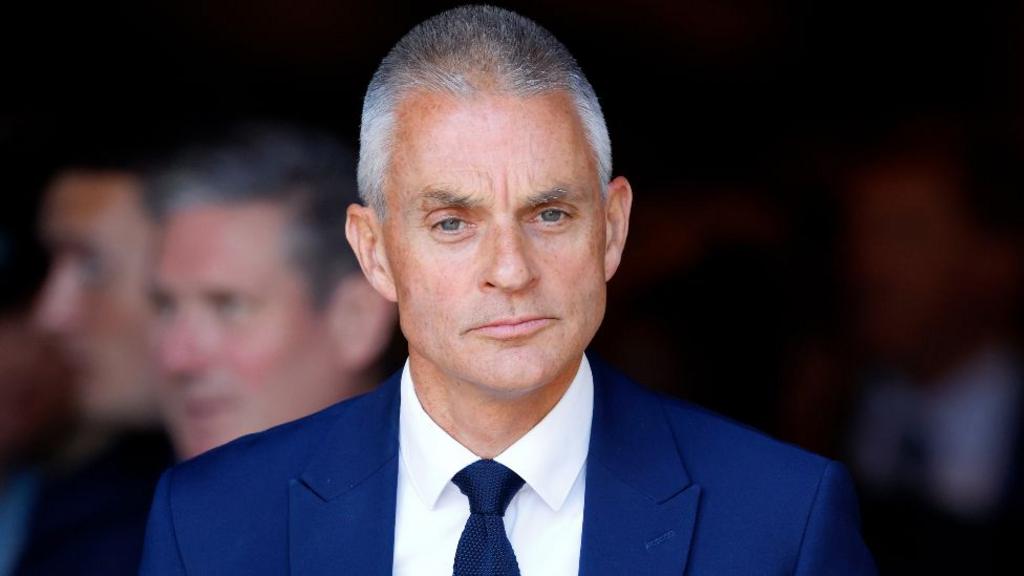During the last appearance of the BBC’s director-general and chair before the Culture, Media and Sport Committee, Members of Parliament (MPs) dedicated approximately thirty minutes to questioning how the corporation aired a documentary concerning Gaza without awareness that its child narrator was the son of a Hamas official.
The session was undeniably challenging.
On Tuesday, the executives faced the committee again, this time against a backdrop further complicated by what Culture Secretary Lisa Nandy termed “a series of catastrophic failures” within the BBC.
Subsequent to their previous meeting, an investigation determined that the aforementioned Gaza documentary breached the BBC’s standards of accuracy. Furthermore, the corporation received criticism for withdrawing another Gaza documentary, which included allegations of Israel targeting medics—a documentary later broadcast on Channel 4.
The BBC also issued an apology for airing anti-Semitic remarks made by the punk duo Bob Vylan during the Glastonbury Festival broadcast.
Additionally, the broadcaster terminated the contracts of both Masterchef presenters following a review that substantiated allegations against them.
Throughout the summer, Tim Davie and Samir Shah have dedicated considerable time to addressing—and apologizing for—these errors and scandals.
As a result, their responses now demonstrate a marked level of preparedness.
While the committee’s line of questioning remained rigorous, the MPs refrained from the theatrical grandstanding that some previous members occasionally employed. (Though, admittedly, such moments are sometimes missed).
However, neither Davie nor Shah adopted such an approach. Notably, the BBC chair often provides the most readily quotable statements.
In March, he characterized the controversy surrounding “Gaza: How to Survive a Warzone” as “a dagger to the heart” of BBC impartiality.
This time, he asserted: “It doesn’t matter how grand you are, how famous you are. If you abuse your power, we don’t want you working for the BBC.”
He possesses a talent for memorable phrasing and rises to the occasion. “I am absolutely clear that no one is irreplaceable,” he also stated.
However, the majority of the substantive discourse was led by Tim Davie, whose responses tend to be more complex and nuanced, often adding multiple dependent clauses before reaching the core point.
Despite this, his performance before the committee was both confident and robust.
When questioned about whether he had considered resigning, Davie acknowledged the immense pressure involved. However, he maintained that individuals in leadership positions “should be held accountable.”
When pressed for a categorical assurance that future meetings with the MPs would not be overshadowed by further scandals, Davie conceded he could not guarantee that the BBC would never again face instances of abuse of power—a concession that any leader would likely make. Yet, the Director-General asserted that the BBC is “resetting the industry.”
Both Davie and Shah presented a consistent narrative: first, that the BBC is at the forefront of addressing misconduct by its employees, resulting in job losses for some individuals. Second, that the BBC holds vital importance for the nation’s well-being and should have its future secured.
Davie has weathered a challenging summer marked by public criticism from the Culture Secretary, who later appeared to retract her comments following accusations of overreach.
The upcoming significant challenge—barring further unforeseen “events”—is the negotiation for a new license fee agreement.
During the session, MPs questioned what one described as the BBC’s “wall-to-wall coverage” of Nigel Farage and the Reform party, querying how a party with only four MPs garners such extensive airtime.
Tim Davie explained that “the political landscape has changed fundamentally” and the broadcaster is adapting to that fact.
The irony is that Reform’s leader Nigel Farage has previously stated his party’s intention to abolish the license fee if they were to form a government. This would render negotiations regarding the BBC’s funding model, as suggested by BBC executives, irrelevant.
On multiple occasions throughout Tuesday’s session, Davie turned responses into a defense of the BBC and its crucial role in public life.
As charter renewal negotiations accelerate and decisions regarding the BBC’s future funding are to be made, anticipate further such arguments in the weeks and months to come.
Gregg Wallace and John Torode were sacked after an inquiry into conduct on the BBC show.
The 31-year-old played Jay Brown and was one of the show’s longest-serving cast members.
The Saturday Kitchen host replaces Wallace, who was sacked after a report upheld complaints over his behaviour.
Cody Paul, who has right-sided hemiplegia, has helped to raise more than £5,000 for Little Heroes NI.
The Look North presenter celebrates two milestones as he reflects on his much-loved career.

